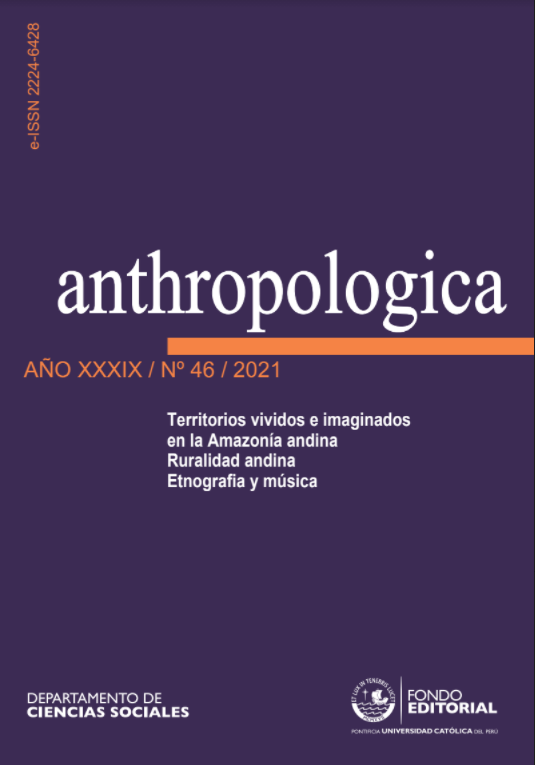Participación comunitaria en el mecanismo Transferencias Directas Condicionadas del Programa Bosques
DOI:
https://doi.org/10.18800/anthropologica.202101.006Palabras clave:
participación comunitaria, complementariedad de género, comunidades indígenas, incentivos económicos para conservación, San Martín, Amazonía peruanaResumen
Chirikyacu, Chunchiwi y Chirik Sacha, ubicadas en la región San Martín (Perú), son comunidades nativas afiliadas al Programa Bosques. En las tres se aprobó la implementación del mecanismo Transferencias Directas Condicionadas (TDC) como instrumento financiero para la conservación de su bosque primario. Esta investigación caracteriza la participación de los beneficiarios a partir del tipo de involucramiento y cantidad de participantes en la ejecución del TDC, identificando factores que facilitan o limitan la participación del grupo beneficiario minoritario.
Las minorías, como en cualquier sociedad, acceden a menores oportunidades. En las tres comunidades se encontraron grupos minoritarios más numerosos (e.g.: mujeres) que otros (e.g.: mono-lingües), también se encontraron normas de género aceptadas que limitan a los grupos minoritarios de experimentar desenvolvimiento y aprendizaje. Con los aportes del 86% de familias beneficiarias, se identificó un sistema no complementario de género en la mayoría de las actividades del programa, que además es predominante en el grupo más favorecido de la comunidad.
Se concluye que el grupo minoritario principal puede aumentar la cantidad de participantes a partir de las oportunidades que permita la complementariedad de género que rige en cada comunidad (factor interno) y del enfoque de género que incorpore el programa Bosques (factor externo).
Descargas
Descargas
Publicado
Cómo citar
Número
Sección
Licencia

Esta obra está bajo una licencia internacional Creative Commons Atribución-NoComercial 4.0.








